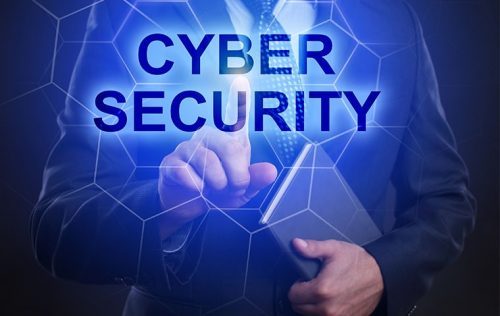In today’s digital age, where technology drives most business operations, cybersecurity has become a critical concern for companies of all sizes. However, small businesses often overlook the importance of robust cybersecurity measures, assuming they are less likely targets for cyber threats. This couldn’t be further from the truth. Hackers often target small businesses precisely because they tend to have weaker security defenses. In this article, we will delve into essential cybersecurity best practices that small businesses should adopt to safeguard their sensitive data and operations.
Small businesses are the backbone of the economy, driving innovation and growth. As technology integrates deeper into business operations, the risk of cyberattacks also increases. Despite their size, small businesses possess valuable data that can be attractive to cybercriminals.
Understanding Cybersecurity for Small Businesses
The digital landscape is rife with cyber threats such as data breaches, ransomware attacks, and phishing scams. These threats have the potential to cripple a small business financially and damage its reputation. Hackers often view small businesses as soft targets due to their limited resources for cybersecurity. This vulnerability makes it easier for cybercriminals to exploit weaknesses and gain unauthorized access. Before implementing any cybersecurity measures, it’s crucial to conduct a thorough security audit to identify vulnerabilities in your systems and processes. Enforce the use of strong, unique passwords and consider implementing multi-factor authentication (MFA) for added security.
Regular Software Updates & Patch Management
Keep all software and applications up to date with the latest security patches to prevent vulnerabilities from being exploited. Use firewalls, encryption, and intrusion detection systems to secure your network and prevent unauthorized access.
Employee Training and Awareness
Train your employees to recognize and respond to potential security threats, including phishing attempts and social engineering tactics.
Protecting Customer Data
Encrypt sensitive customer data to ensure that even if it’s accessed by unauthorized individuals, it remains unreadable and unusable. If your business handles online payments, use secure payment gateways and comply with Payment Card Industry Data Security Standard (PCI DSS) requirements. Only retain customer data for the necessary period and securely dispose of data that is no longer needed.
Safeguarding the Integrity of Customer Data
The safeguarding of sensitive customer data is non-negotiable, and data encryption serves as a formidable defense mechanism. Encryption ensures that even if unauthorized entities gain access to encrypted data, the information remains indecipherable and unusable. These measures protect both the business and its customers from payment-related cyber threats.
Exercising prudence in data retention involves retaining customer data only for necessary periods and securely disposing of obsolete information. This practice minimizes the potential impact of a data breach and reinforces the trust customers place in the business.
Fending off Elaborate Phishing Attacks
Educating employees about the art of identifying phishing emails is an indispensable aspect of cybersecurity preparedness. Training staff to scrutinize sender addresses, recognize grammatical inconsistencies, and resist the urge to click on suspicious links can thwart phishing attempts. The implementation of two-factor authentication (2FA) adds an additional layer of security to user accounts and systems. By requiring users to provide two distinct forms of authentication, such as a password and a unique code sent to their mobile device, the likelihood of unauthorized access is significantly diminished.
Data Backup and Recovery Plans
Regular Data Backups
Frequently back up your critical business data to secure locations to ensure data recovery in case of data loss or a ransomware attack.
Testing Restoration Processes
Regularly test the restoration process of your backups to verify their integrity and effectiveness.
Collaborating Securely
Secure file sharing and communication platforms equipped with end-to-end encryption safeguard sensitive information during transit and storage. These tools facilitate collaboration among team members while maintaining the confidentiality and integrity of shared data. Collaboration with external vendors and third parties introduces potential points of vulnerability. Conducting rigorous security assessments of vendors’ cybersecurity practices safeguards against entrusting critical data and processes to entities with inadequate security measures.
Importance of Reliable Internet Providers
In the rapidly evolving digital landscape of today, a dependable and high-speed internet connection is indispensable for both individual and commercial needs. There are several internet service providers (ISPs) that offer a range of plans and services to cater to different needs. Let’s look at the three prominent ones that offer the most secure internet connections.
Frontier Communications
Frontier Communications is a telecommunications company that offers internet, phone, and TV services across the United States. They provide both DSL and fiber-optic internet options, making them accessible to a wide range of customers. They offer various internet plans with different speeds to suit different user requirements. All Frontier internet plans come with advanced security features like anti-malware software, DDoS Protection, and Data Encryption features to offer a secure browsing experience.
Spectrum
Spectrum, a brand of Charter Communications, is another major player in the ISP market. They provide cable internet services to millions of customers in the United States. Spectrum is known for its consistent and high-speed cable internet service. They offer a variety of plans designed to meet the needs of different households. From standard plans suitable for casual internet users to faster options for streaming and gaming enthusiasts, Spectrum has a range of choices. Additionally, Spectrum is one of the leading ACP internet providers, which means eligible individuals can access their basic internet plan for free. One notable aspect of their plans is that all internet plans come with the latest Spectrum Security Suite to prevent malware attacks and protect user data.
EarthLink
EarthLink is another ISP that offers internet services through various technologies, including DSL, cable, and fiber optic. They focus on delivering reliable fiber internet connectivity to homes and businesses. Earthlink internet plans cater to a wide number of users, from individuals who require basic internet access to businesses that need robust connections for smooth operations. EarthLink is also known for its commitment to customer privacy and security, offering features like antivirus protection and online security tools as part of its packages.
Conclusion
In today’s rapidly evolving digital landscape, where technology permeates virtually every facet of business operations, the significance of cybersecurity for small businesses cannot be overstated. The prevalence of cyber threats, ranging from insidious data breaches to debilitating ransomware attacks, underscores the urgent need for proactive cybersecurity measures. While small businesses might consider themselves less likely targets for cybercriminals, the reality is quite the opposite. Hackers frequently target small businesses precisely because they often lack the robust security defenses that larger corporations possess.









